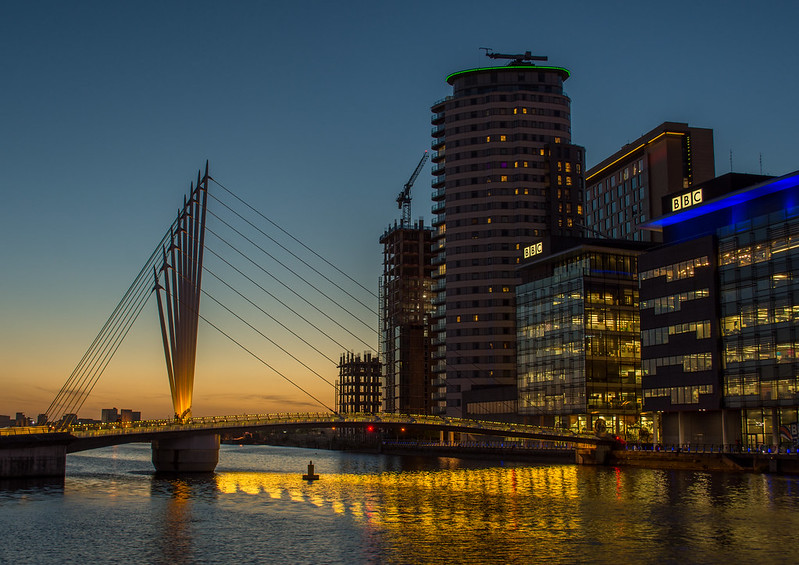
Photo: Steve Walker (Flickr)
UK accelerator launches innovation hub toolkit
23 April 2021
by Sarah Wray
UK accelerator Connected Places Catapult has launched a guide which aims to help jumpstart the UK’s economic recovery by seeding and supporting innovation quarters, districts and corridors.
Hubs of Innovation: A playbook for place leaders was created in collaboration with the UK Innovation Districts Group, with research led by The Business of Cities and is designed for place-leaders, anchor institutions and larger stakeholders who play key roles in the innovation sector.
The report provides guidance to those at different stages of maturity in developing innovation hubs and draws on best practices from existing hubs such as MediaCityUK in Salford, the Belfast Innovation District, Queen Elizabeth Olympic Park in East London and the Knowledge Quarter in Liverpool.
Speaking at the recent CBI Urban Revival conference, Professor Greg Clark, Chair of Connected Places Catapult, said: “Innovation will drive the UK forward from the shock of COVID, to recovery, revival, and reinvestment.
“Places are often overlooked when it comes to improving productivity and making innovation happen. But all successful innovation economies have magnetic nodes of activity that are tightly clustered in specific locations and generate visibility and momentum.
“Making these places excel is central to optimising the potential of high value clusters. Entrepreneurs are the lifeblood, the brain is invention, and place is the beating heart that keeps innovation alive and the energy flowing.”
Steps to success
The handbook outlines the sequence of steps and stages that help create and then sustain hubs of innovation.
Once the prerequisites of essential ecosystem components are in place, it observes the different tasks and roles of government, business, universities and place leaders that tend to arise at different stages – from audit, set-up, and foundation to the growth stage where innovation outcomes multiply.
When a place reaches ‘critical mass’, it is delivering a whole place return – economically and socially – and providing a full suite of services and amenities to the innovation and resident communities.
“What is exciting is the momentum that is building for the UK’s emerging and aspiring innovation districts to become more connected nationally and globally,” said Emma Frost, Chair of the UK Innovation Districts Group.
“Together, they are becoming more informed by each other’s experiences, and fostering a shared spirit of purpose and co-operation that provides mutual advantage as they rethink their path to success after Covid-19. More places are learning to do the right things and sidestep avoidable mistakes.”
Professor Clark said the UK must also learn from experiences in places such as Toronto, Tel Aviv and Seoul.
“Innovation does not need to be concentrated only in already prosperous regions,” he added. “The experience of Dundee, Philadelphia, and Berlin show us that innovation will grow in places that do the right things consistently.”
Steve Walker (Flickr)







